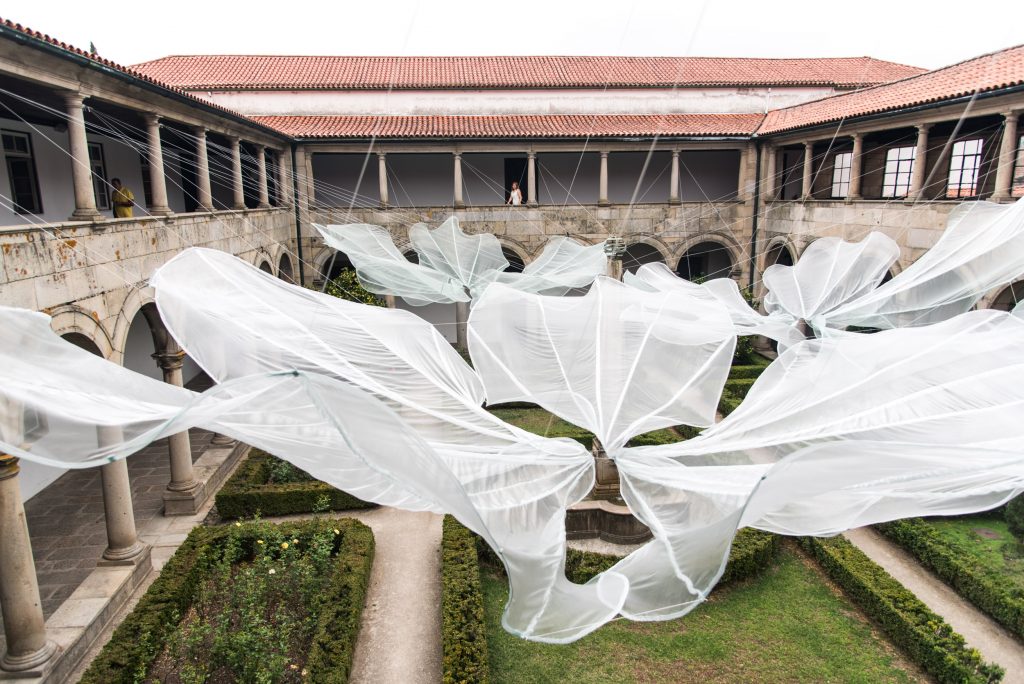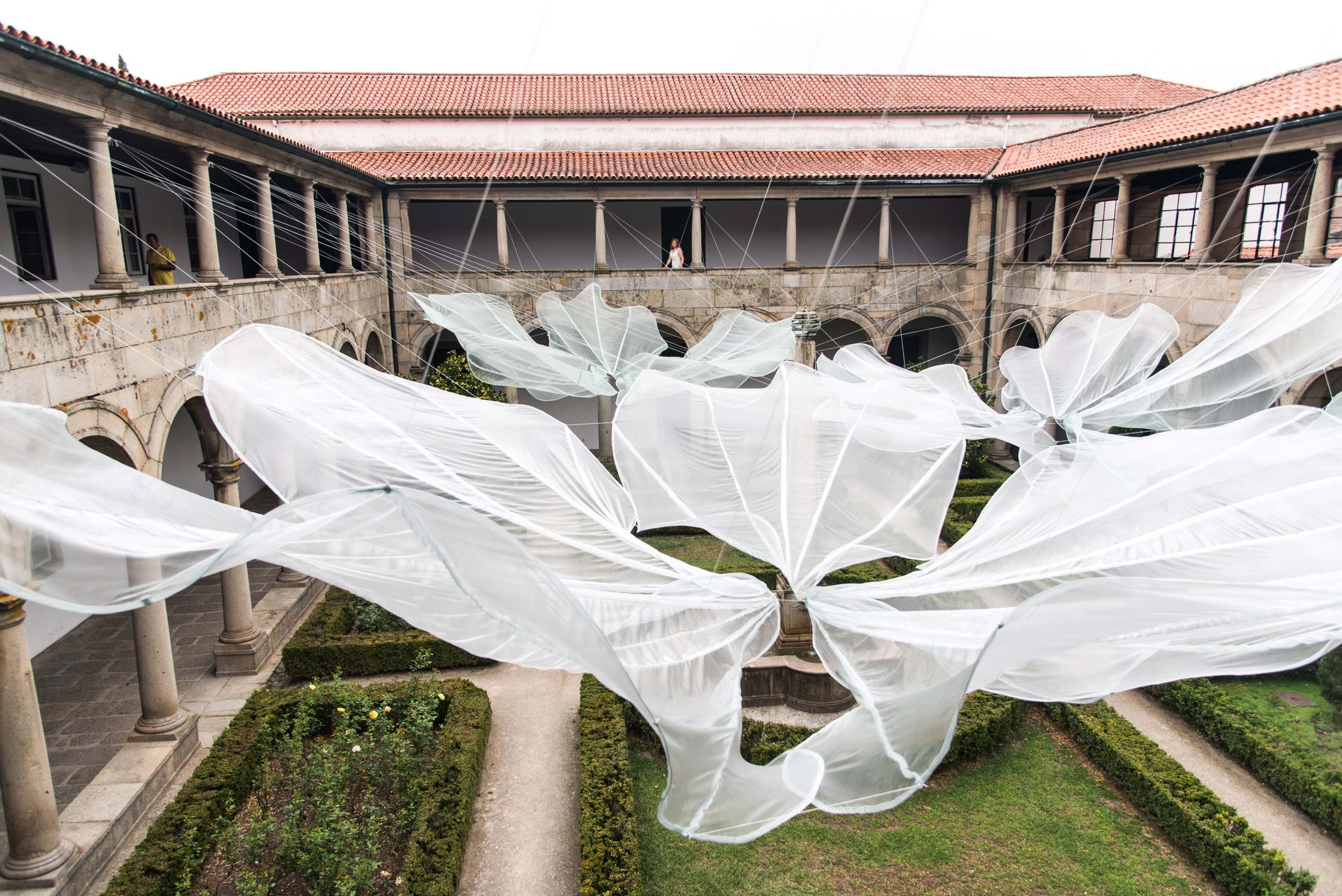TRACES OF TIME
Emerging artist: Ida Blazicko (Croatia)
Residency place: Ideias Emergentes (Guimarães, Portugal)
Practice: Art in public spaces, sculpture
Curated by: Claudia Melo
Guimarães, a town in the North Portugal and its unique practice, have served as an inspiration for two artists who are working with fabrics. The approach of Ida Blazicko is a non-intrusive transformation of the space with fluttering installations that bring light(ness) to the constructions they hover over, somewhat reminding of white fresh linen dancing in the wind.
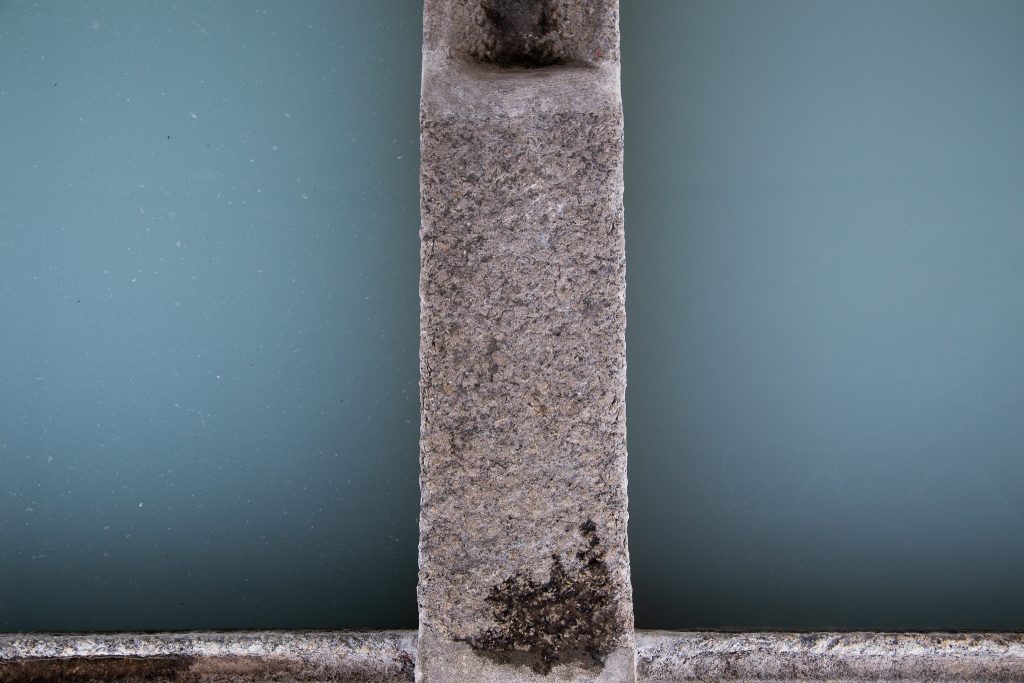
Ida Blažičko took an MFA in sculpture at the Academy of Fine Arts in Zagreb in 2007. At the China Academy of Art in Hangzhou, where she also taught in the department of art in public space and artistic installations in landscape (2010-2013), she took a doctorate with a dissertation on Sustainable Public Art: Re-creating Urban Environment (2012). In public spaces, she produced sculptures of steel – Wind (Shanghai, 2011) and Wind II (Hangzhou, 2012). At the Academy of Fine Arts in Zagreb, she took a doctorate with the dissertation Biomimetics in the service of art (2016).
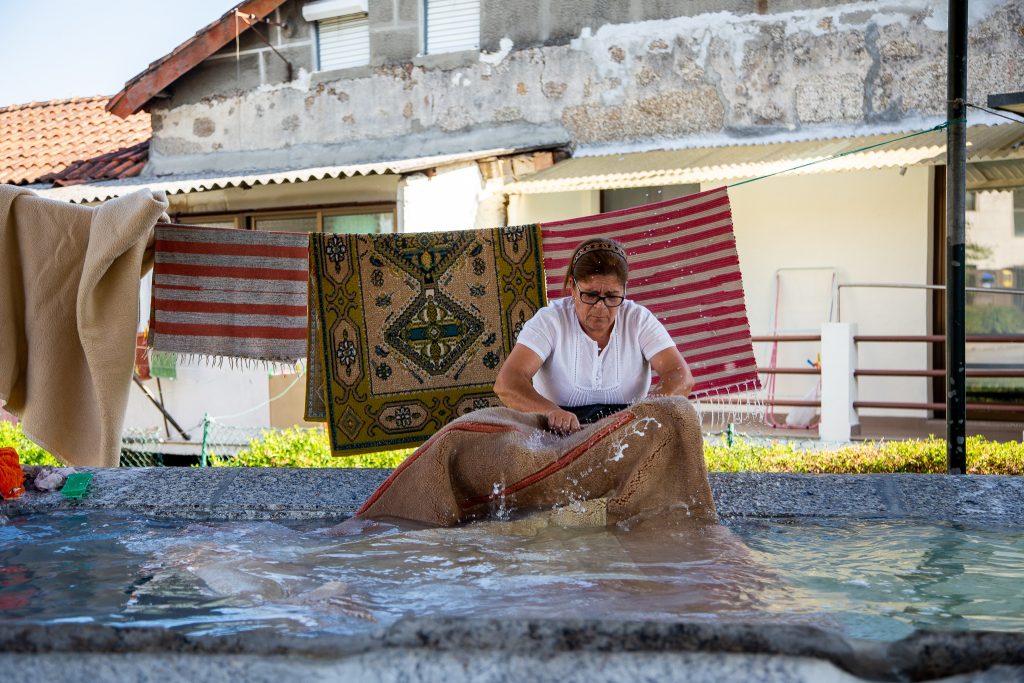
Together with a fellow artist-in-residence from UK Hermione Allsopp, Ida became acquainted with a community of women who do laundry in the outdoor tanques lavadoros, their routine and ways of life. While communication was limited due to linguistic barriers, it was a wonderful sense of discovery that it is still possible to understand one another. The artists were shown around the town and became familiar with the traditions of tanques lavadoros, which while unique is, unfortunately, diminishing.
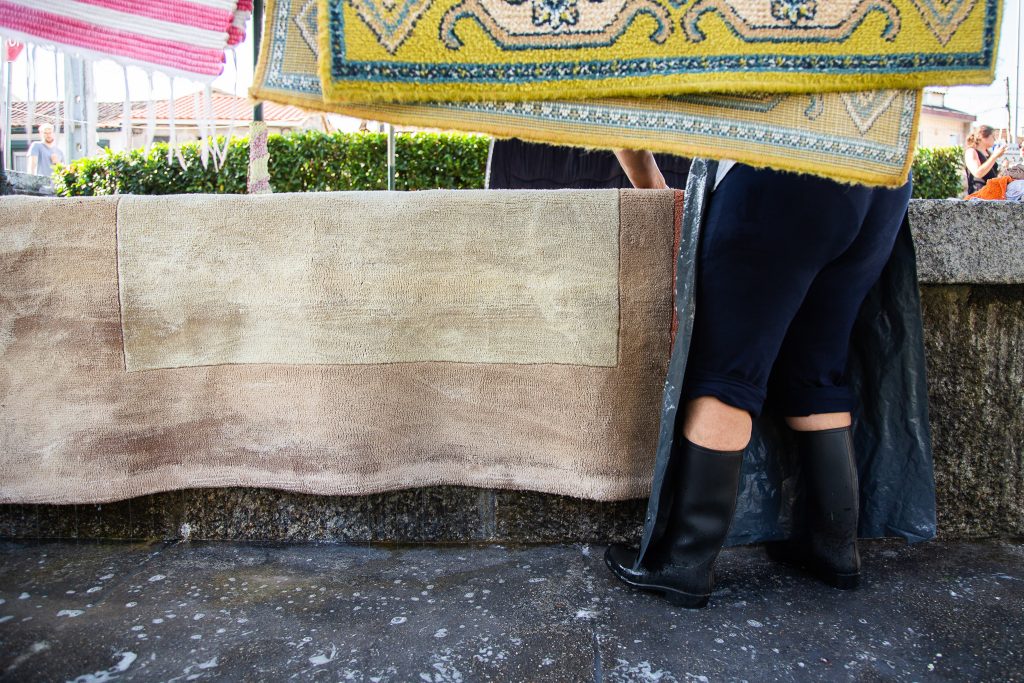
Water tanks and rivers have always been focal points for multiple social activities. Inspired by the phenomenon of water tanks of Guimarães, which have always been essential places of gathering and socialization for the community, the site-specific sculptures incorporated at the three locations (Convent of St. Clare, Casa da Memória, São Gualter water tank) tried to re-establish a unique and intimate connection between society and water, which is gradually getting lost. The building of the Convent of St. Clare dates to the 16th century and since 1968 it was designated as the City Hall of Guimarães, housing also the municipal archives. Casa da Memória is a center of interpretation and knowledge that exposes, interprets and communicates material and immaterial testimonies that contribute for a better knowledge of the culture, territory and history of Guimarães, working with and for the community, experts and local agents, with a view to the development of an active and participatory citizenship. It is known as a place of meeting, sharing and reflection of Guimarães’ roots, traditions and memories.
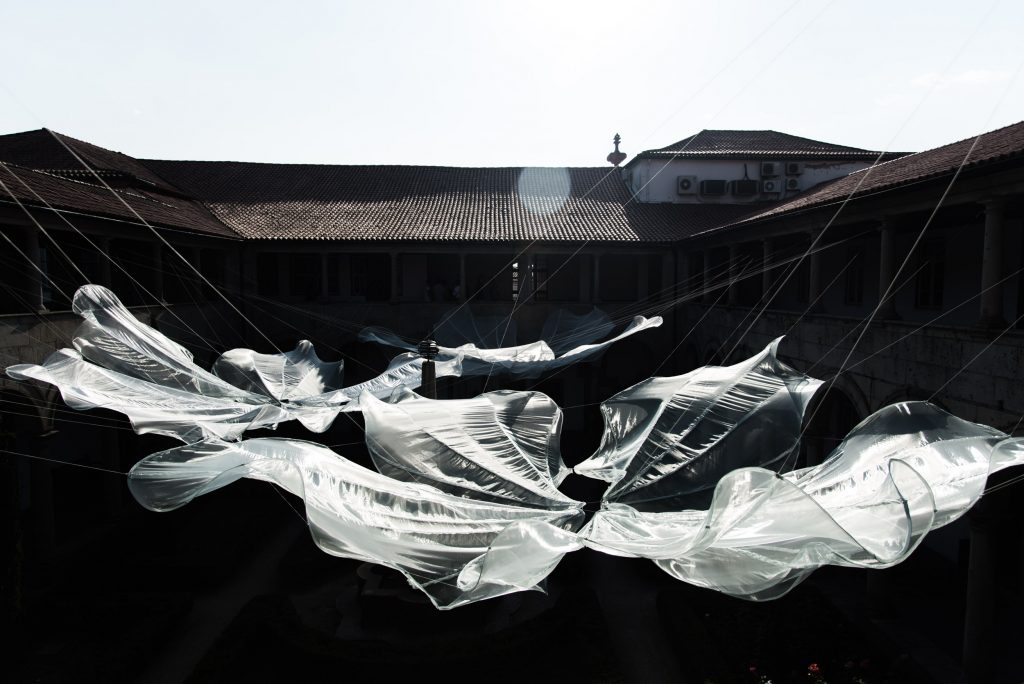
The site-specific sculptures create contemplative consonance with the surroundings. The interplay between light, space and the transparent fragile textile creates a quiet sensation of presence and absence. The sculptures are not simply objects, but they are a relational process in progress that incorporates nature and observer by establishing a constant dialogue with the site by not only surprising the spectator, but also leading him/her to see the surrounding space in a different way.
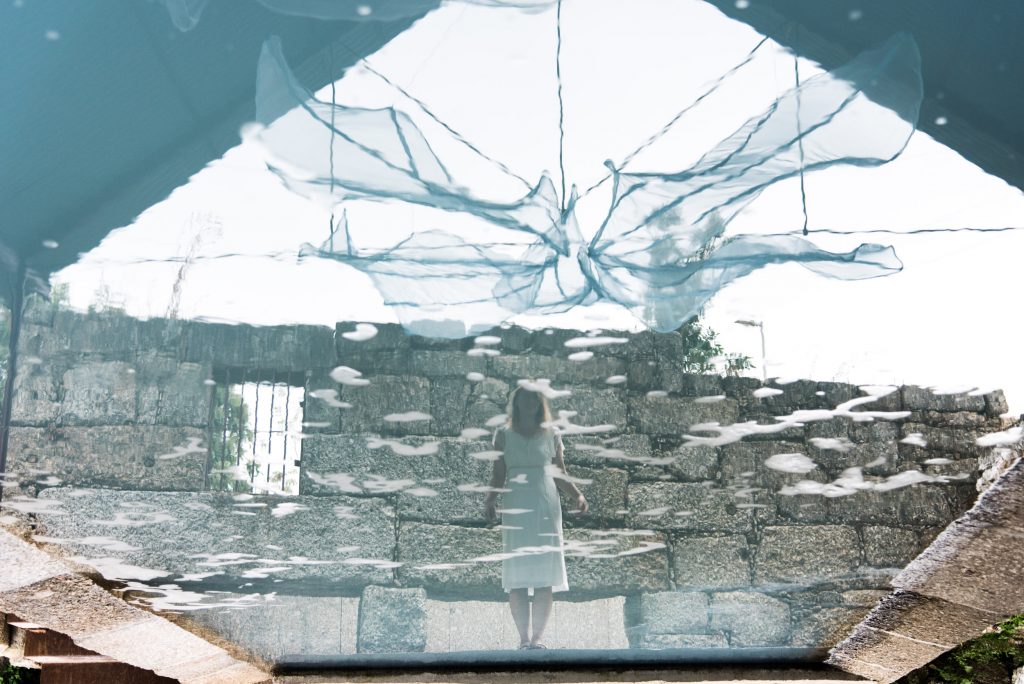
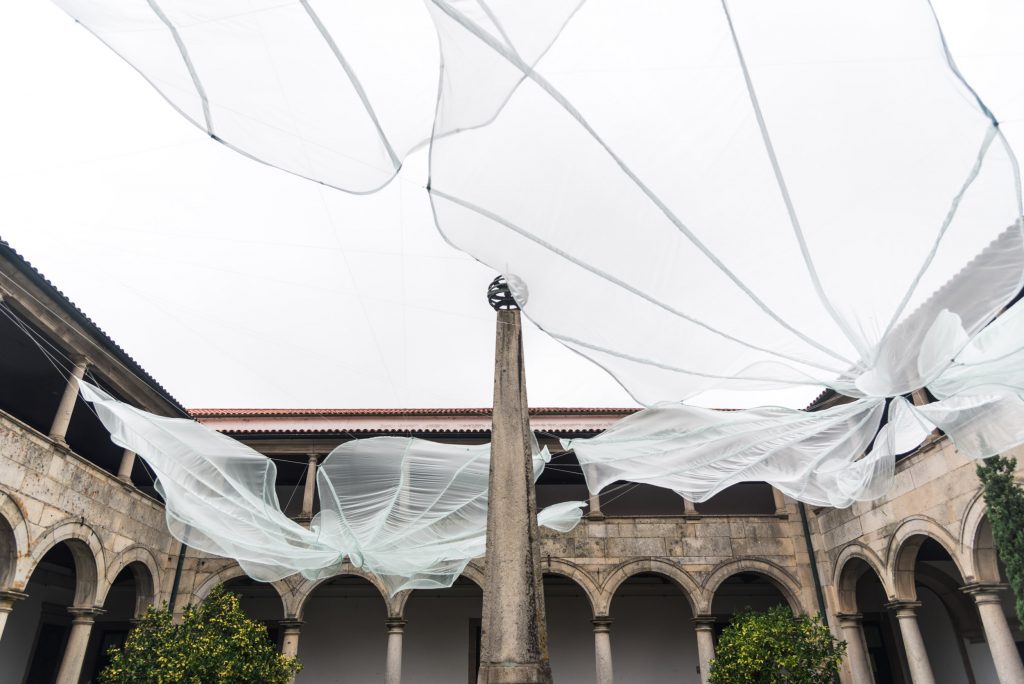
Text by Agnė Poderytė
